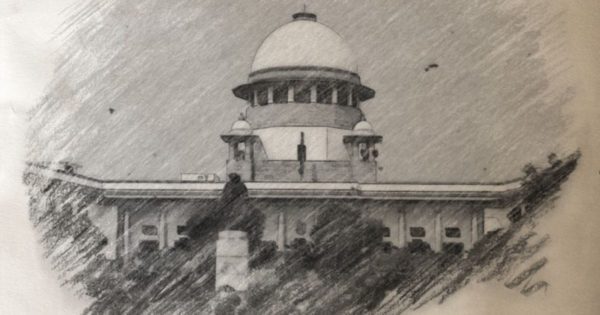
Linkages between Municipality and Teachers Recruitment Scam
In a recent development, the Supreme Court of India has dismissed a plea filed by the State of West Bengal challenging the decision of the Calcutta High Court to transfer the probe into the West Bengal Municipality Recruitment Scam to the Central Bureau of Investigation (CBI). The apex court bench, comprising Chief Justice DY Chandrachud, Justice JB Pardiwala, and Justice Manoj Misra, emphasized that there were prima facie indications of a connection between the municipality recruitment scam and the ongoing investigation into the teachers recruitment scam, which is being handled by both the CBI and the Enforcement Directorate (ED).
State’s Argument and ED’s Jurisdiction
Representing the State of West Bengal, Senior Advocate Kapil Sibal argued that the High Court’s decision to transfer the case to the CBI was flawed, as there was insufficient evidence to suggest that the state authorities were unable to investigate the scam. Sibal further contended that the ED had overstepped its jurisdiction in the matter, accusing the agency of targeting officers without valid grounds. He questioned the applicability of the ED in this context, asking why the agency was involved and which other states were facing similar situations.
ED’s Perspective and Alleged Conspiracy
However, Additional Solicitor General of India SV Raju, representing the ED, presented a different viewpoint. Raju argued that there seemed to be a “larger conspiracy” at play, linking the two seemingly distinct scams – the Municipality Recruitment Scam and the Teachers Appointment Scam. He asserted that these two cases were interrelated rather than separate offenses. Raju pointed out that during the investigation of the teachers recruitment scam, the ED stumbled upon information related to the municipality recruitment scam. He cited Section 66(2) of the Prevention of Money Laundering Act (PMLA), which requires the ED to disclose information about other offenses. This prompted the ED to approach the Calcutta High Court with an application.
Legal Provisions and CBI’s Involvement
Raju clarified that based on the High Court’s order, the CBI initiated an FIR (First Information Report) and commenced its investigation into the matter. He underscored Section 66(2) of the PMLA, which empowers the ED to share information with Central Government officers in the interest of public welfare. Raju also pointed out that witnesses in both the municipality and teachers recruitment scams had revealed “common links” between the two cases.
Court’s Observations and Dismissal of Plea
The Chief Justice intervened at this juncture, noting that the CBI’s investigation into the Teachers’ Recruitment Scam had concluded, including the examination of witness statements. Sibal interjected, arguing that the High Court had passed its order without adequate supporting material and had solely relied on the status report. He emphasized that bypassing the state machinery was not a desirable precedent to set.
The Chief Justice countered Sibal’s argument, indicating that the single judge had relied on the available status report, suggesting that there was indeed material before the court. The Chief Justice emphasized the connection between the municipal and teachers recruitment scams, highlighting that the same individual had prepared the Optical Mark Recognition (OMR) sheets for both exams.
Safeguarding State Power and Precedent
Sibal reiterated his stance, highlighting the importance of safeguarding the state’s authority. He referenced the Sampath Lal judgment, emphasizing that allowing the bypassing of state machinery could have far-reaching consequences for other states as well.
The Chief Justice recognized the uniqueness of the situation, noting that had the Municipality Scam been isolated from the Teachers’ Recruitment Scam, the outcome might have been different. However, since the court found substantial links between the two cases, it concluded that the transfer of the case to the CBI was justified.
Conclusion
In light of these arguments and considerations, the Supreme Court’s decision to dismiss the plea challenging the transfer of the West Bengal Municipality Recruitment Scam investigation to the CBI underscores the court’s commitment to ensuring a fair and comprehensive investigation. The interlinkages between the municipality and teachers recruitment scams, as highlighted by both the ED and the court, shed light on a complex web of alleged wrongdoings that need to be thoroughly probed. This case also sets an important precedent for the scope of central agencies’ involvement in state-level matters, balancing the need for effective investigation with the preservation of state authority. As this legal saga continues, it will be interesting to see how this decision shapes future cases involving similar jurisdictional complexities.













